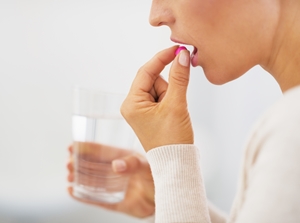
It almost goes without saying that once you find out you’re pregnant, you’re going to have to make some changes to your diet. Cutting back on alcohol, researching foods to avoid during pregnancy and reading up on the many vitamins and minerals you and your growing baby need are just some of the tasks you’ll be charged with. Eating healthier foods and reducing the amount of junk you consume can also help ensure that your pregnancy goes off without a hitch.
But a healthy diet doesn’t always provide moms-to-be with all of the nutrients they need. Fruits and vegetables aren’t as nutritious as they used to be thanks to modern farming techniques, and your diet preferences may load you up on certain nutrients more than others. But that’s where prenatal vitamins come in. These pregnancy-specific nutrient cocktails are made to help you cover all of the vitamins and minerals you need for a healthy pregnancy. The best ones should include these five must-have ingredients.
1. Iron
Getting extra iron is important during pregnancy. Your body is making extra blood to support your baby, who is also storing iron in his or her body, which aids in his or her growth and development. To avoid iron-deficiency anemia, which can increase your risk of preterm delivery, low birth weight and infant mortality, you should aim to get at least 27 milligrams of iron a day.
Most prenatal vitamins contain anywhere from 20 to 60 milligrams of iron. Some women may need to get even more of the mineral, in which case their health care providers will likely recommend an additional iron supplement to complement the prenatal vitamin.
2. Folic acid
Folic acid is a B vitamin (B9) that helps prevent neural tube defects such as spina bifida and anencephaly. These defects are abnormalities of the brain and spinal cord that develop in the first 28 days after conception, when many women don’t even know that they’re pregnant yet. That’s why many doctors recommend that women who may get pregnant or are trying to conceive take a folic acid supplement.
Doctors suggest getting 400 micrograms of folic acid a day at least one month before you start trying to conceive, and at least 600 micrograms a day once you’re pregnant. Most prenatal vitamins contain between 600 and 1,000 micrograms.
3. Calcium
Getting enough calcium during pregnancy can help your baby grow strong bones, teeth, nerves and muscles. Of course, you also need enough to make sure that your body is strong enough to support your baby. You need about 1,000 milligrams of calcium every day during pregnancy, but most prenatal vitamins only have between 100 and 300 milligrams.
Prenatal vitamins don’t usually contain more calcium because it’s a bulky mineral that would make the pill too large. Therefore, if you don’t eat at least three servings of calcium-rich dairy products a day, ask your health care provider if you need to take a calcium supplement.
4. Essential fatty acids
The omega-3 fatty acids DHA and EPA are important for your baby’s brain, nerve and eye tissue development. You can get them from low-mercury fish, flaxseed and chia seeds, but it’s never a bad idea to take a supplement. Not all prenatal vitamins contain these fatty acids, but more are starting to.
Aim for a minimum of 200 to 300 milligrams of omega-3s per day. Research even suggests that 600 to 900 milligrams might be the ideal amount.
5. Vitamin D
This fat-soluble vitamin helps your baby’s bones and teeth develop. It also helps maintain calcium and phosphorus levels. If you don’t get enough vitamin D during pregnancy, your baby might be at risk for rickets, abnormal bone growth and delayed physical development. Vitamin D deficiency has also been linked to a greater risk of preeclampsia and cesarean sections.
Look for a prenatal vitamin that contains at least 400 international units of vitamin D.


Leave a Reply